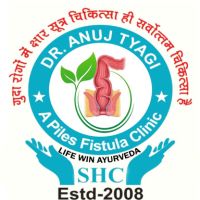
Exploring the Effectiveness of Kshar Sutra Treatment for Healing
In the realm of traditional Indian medicine, Kshar Sutra treatment stands as a time-honored therapeutic approach with roots dating back centuries. Utilized primarily for the management of anorectal disorders such as fistula-in-ano, piles, and fissures, Kshar Sutra therapy offers a holistic and natural alternative to conventional medical interventions. In this comprehensive exploration, we delve into the effectiveness of Kshar Sutra treatment for healing, uncovering its principles, procedures, and potential benefits in promoting overall wellness. Fistula Treatment in Ghaziabad
Understanding Kshar Sutra Treatment
Kshar Sutra, derived from the Sanskrit words "Kshar" meaning alkali or caustic substance and "Sutra" meaning thread, refers to a specialized technique in Ayurveda for treating various diseases, particularly those affecting the anorectal region. The treatment involves the use of medicated alkaline threads, prepared from specific herbal extracts and minerals, which are inserted into the affected area to promote healing and tissue regeneration.
Principles of Kshar Sutra Therapy
Kshar Sutra therapy operates on the principles of Sushruta Samhita, an ancient Ayurvedic text attributed to the sage Sushruta. According to Ayurvedic philosophy, diseases are believed to result from an imbalance of the three doshas—Vata, Pitta, and Kapha—and the treatment aims to restore this balance to facilitate healing. Kshar Sutra treatment is based on the concept of "Kshar Karma," which involves the controlled application of medicated alkaline substances to diseased tissues to induce necrosis and promote healing.
Procedure of Kshar Sutra Treatment
The process of Kshar Sutra treatment begins with the preparation of the Kshar Sutra thread, which is made by coating surgical linen threads with a combination of herbal extracts and alkaline substances such as Snuhi latex (Euphorbia neriifolia) and Apamarga Kshara (Achyranthes aspera). The thread is then sterilized and dried before being used for treatment. During the procedure, the Kshar Sutra thread is inserted into the fistulous tract or affected area and periodically tightened to facilitate cutting, drainage, and healing of the diseased tissues. Fissure Clinic in Ghaziabad
Benefits of Kshar Sutra Treatment
Kshar Sutra therapy offers several potential benefits for patients suffering from anorectal disorders:
Minimal Invasiveness: Compared to conventional surgical procedures, Kshar Sutra treatment is minimally invasive and does not involve major incisions or tissue removal, resulting in reduced postoperative pain, discomfort, and recovery time.
High Success Rate: Studies have shown that Kshar Sutra therapy can achieve high success rates in the treatment of anorectal disorders, with low recurrence rates and favorable long-term outcomes.
Preservation of Anal Continence: Unlike conventional surgeries that may pose risks to anal sphincter function and continence, Kshar Sutra treatment is less likely to cause damage to surrounding healthy tissues, preserving anal function and continence.
Natural Healing: Kshar Sutra therapy harnesses the healing properties of medicinal herbs and alkaline substances, promoting natural tissue regeneration and wound healing without the use of synthetic drugs or chemicals.
Customized Treatment: Kshar Sutra treatment can be tailored to the individual needs and characteristics of each patient, allowing for personalized care and optimal outcomes.
Considerations and Precautions
While Kshar Sutra treatment offers promising benefits, it is essential to consider certain precautions and potential risks associated with the therapy:
Expertise and Experience: Kshar Sutra therapy should be performed by qualified and experienced Ayurvedic surgeons or practitioners with specialized training in the technique to ensure safety and efficacy.
Patient Selection: Not all patients may be suitable candidates for Kshar Sutra treatment, and the decision to undergo the therapy should be based on a thorough evaluation of the patient's medical history, condition severity, and treatment goals.
Postoperative Care: Patients undergoing Kshar Sutra treatment require careful postoperative care, including regular follow-up visits, wound care, and monitoring for complications such as infection or recurrence.
Conclusion
Kshar Sutra treatment represents a valuable therapeutic option for individuals suffering from anorectal disorders, offering a holistic and natural approach to healing and wellness. By leveraging the principles of Ayurveda and the therapeutic properties of medicinal herbs and alkaline substances, Kshar Sutra therapy aims to address the root cause of the disease and promote long-term recovery.
While further research and clinical studies are needed to fully elucidate the efficacy and safety of Kshar Sutra treatment, its centuries-old legacy and growing popularity underscore its potential as a viable alternative to conventional medical interventions. As with any medical procedure, it is essential to consult with qualified healthcare professionals to determine the most appropriate treatment approach based on individual needs and circumstances.
